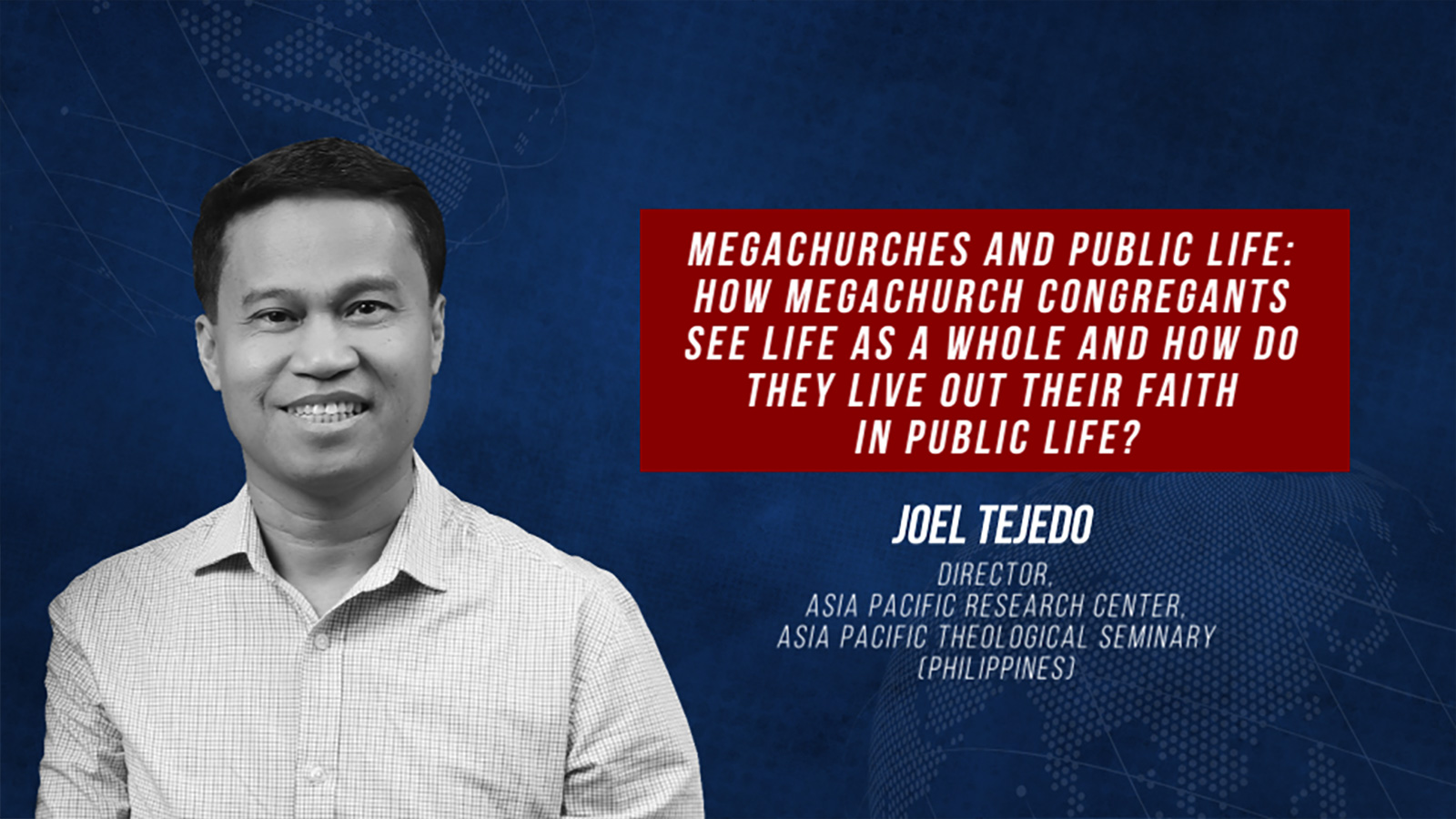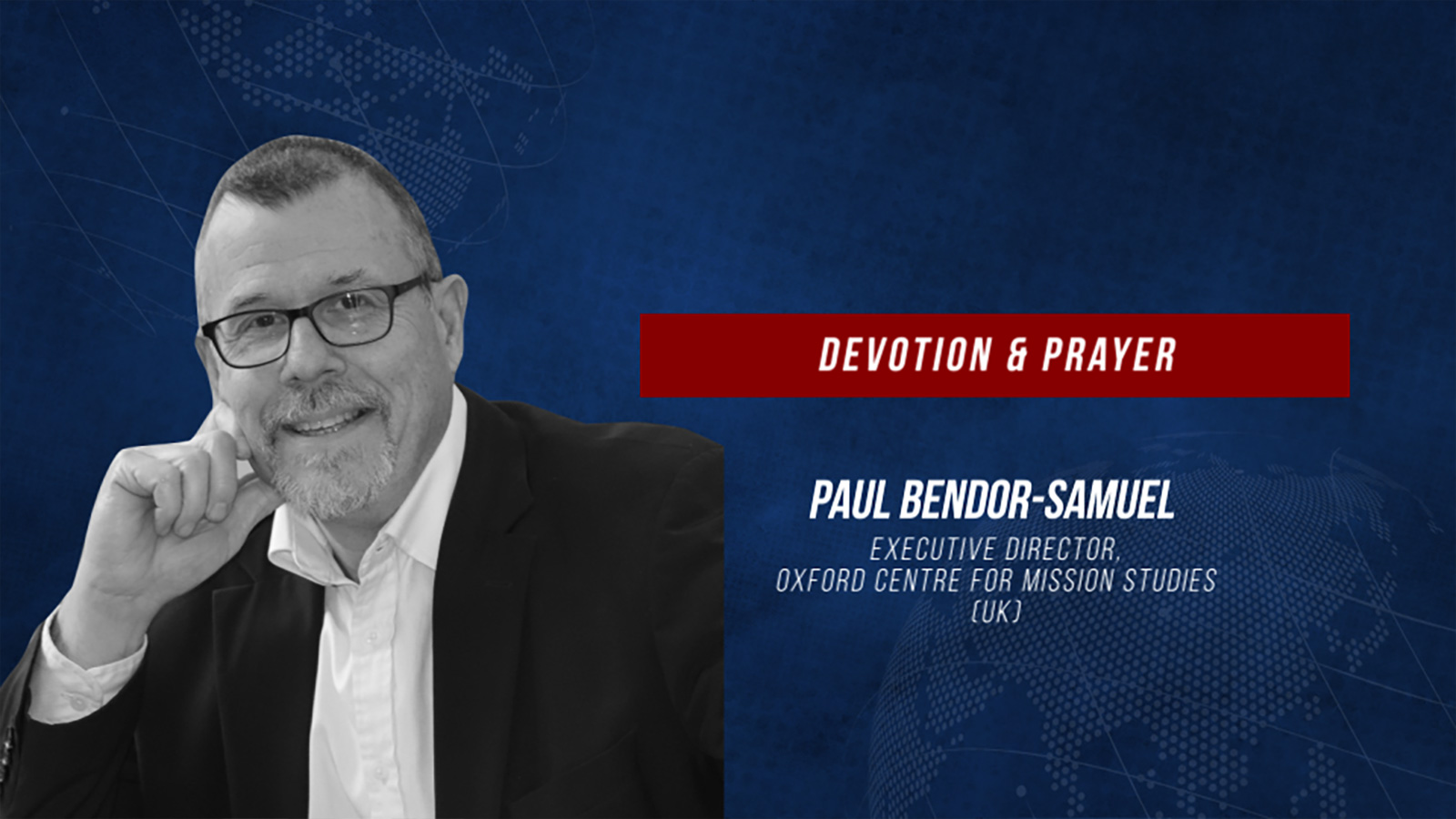Director,
Asia Pacific Research Center,
Asia Pacific Theological Seminary

Joel Tejedo holds a BCMin from Bethel Bible College in the Philippines, along with both an MDiv and DMin from Asia Pacific Theological Seminary. He is currently the Director of Asia Pacific Research Center at Asia Pacific Theological Seminary (Philippines).
He has served as faculty and academic dean at Luzon Bible College, where he opened extension centres in the major cities of Northern Luzon. Dr Joel currently teaches full-time at Asia Pacific Theological Seminary and has written books and articles presented at international conferences.
His research focuses on the Pentecostal impact in the Philippines. Notable papers include How Filipino Pentecostals Build Communities in the Philippines, Baguio City (2011) and A Pentecostal Witness in the Public Sphere: A Case of Four Non-Government Organisations Working Among the Most Vulnerable People in the City of Vallejo, California (2015).
Megachurches at large are undergoing a massive transition and transformation influenced by the recent global health crisis, wars, and political conflicts in various continents. While the study of megachurches in the Global South is still in its infancy period, they will continue to evolve and be forged by the global challenges of the 21st century. How megachurch congregants approach lived religion and how they play their role in public life are questions that are worth noting in our times. Drawing our attention from perspectives and perceptions of megachurch congregants, fresh from the results of the empirical research conducted by the research team of Templeton Megachurch Project of John Templeton Foundation, this study unpacks the collective voices of church congregants as to how they see life from the eyes of faith and how they translate that faith in public life. Using the survey templates of Qualtrics, we surveyed and interrogated megachurch people from all walks of life about faith and life, politics, socio-economic issues, cultural values, social media, and the Covid-19 pandemic and find out important and meaningful discoveries that perhaps shape the public policy toward the study of religion.
Many separate the atonement from Pentecost to the degree that the link between them is lost. I wish to explore that link. The link is based on the insight that the cross of Christ is not limited to Israel. Rather, Christ seeks at the cross to open his life to all peoples, redeeming persons “from every tribe, and language, and people, and nation” (Rev. 5:9) and breaking down the wall of hostility between them (Eph. 2:14-16). The Spirit is poured out on all peoples at Pentecost in loyalty to the cross and for the sake of the crucified and risen Christ.
Many separate the atonement from Pentecost to the degree that the link between them is lost. I wish to explore that link. The link is based on the insight that the cross of Christ is not limited to Israel. Rather, Christ seeks at the cross to open his life to all peoples, redeeming persons “from every tribe, and language, and people, and nation” (Rev. 5:9) and breaking down the wall of hostility between them (Eph. 2:14-16). The Spirit is poured out on all peoples at Pentecost in loyalty to the cross and for the sake of the crucified and risen Christ.
Many separate the atonement from Pentecost to the degree that the link between them is lost. I wish to explore that link. The link is based on the insight that the cross of Christ is not limited to Israel. Rather, Christ seeks at the cross to open his life to all peoples, redeeming persons “from every tribe, and language, and people, and nation” (Rev. 5:9) and breaking down the wall of hostility between them (Eph. 2:14-16). The Spirit is poured out on all peoples at Pentecost in loyalty to the cross and for the sake of the crucified and risen Christ.


Sign up for news & exclusive content
from Global Pentecostal Voices.
By subscribing, I agree to the Privacy Policy and Terms of Use.